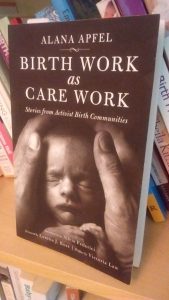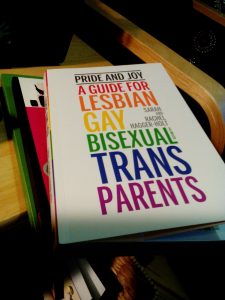I have come across this book a few times, and eventually someone gave me a copy so that I could read it cover to cover at my leisure. Having flicked first to the breastfeeding section and read the advice not to drink champagne lest it give the baby wind, I was tempted to drop it straight in the bin. But no, I persisted, so that you don’t ever have to.
Alison Scott-Wright is very much from the same school as Clare Byam-Cook, whose awful book she recommends; and really you don’t need to know much more than that. If you consider your baby to be a time-consuming, manipulative bore with no feelings, the Plan will suit you just fine. However if you wish to meet your tiny human’s needs following your parental instincts and the best available evidence, and your well-meaning aunt has given you a copy of this book, perhaps treat it as a “how not to parent a baby” guide.
Feel free, in the latter case, to ignore ASW’s basic premise that breastfeeding is really too difficult to bother with; a position that must be continually supported with anecdata from clients having trouble getting breastfeeding to work under the rules she prescribes. Feel free not to ensure your legs are at a 90 degree angle to your body (p41), not to restrict feeds to 3-hourly as soon as possible (p43), not to express five times in 24 hours in addition to breastfeeding on demand (p46), and take with a huge pinch of salt that breastmilk may be made unnatural and impure by environmental pollution. Amuse yourself instead with the mental image of cows living in clinical conditions, wearing nappies and using the finest organic antibacterial gel on their udders at milking time. Should you decide to use formula, please please disregard her instructions for making up bottles in advance, which is in direct opposition to evidence-based guidance from the NHS.
None of her terrible advice about feeding has very much to do with sleep, so let us move on to ignoring what she says about that. ASW likes to cherry-pick the research and twist it to fit her entrenched opinions. So for example she quotes Sue Gerhardt on early emotional development and uses this to argue in favour of her cruel and neglectful plan. If she had read more than the back cover of Why Love Matters, she would find herself in the uncomfortable position of having to reflect on how damaging her advice must be.
ASW does not, however, make any reference at all to the UK’s foremost authority on infant sleep, the work of Professor Helen Ball and Doctor Charlotte Russell at the Durham Infant Sleep Lab, where they undertake rigorous research and provide useful evidence-based information to support parents. And for this reason, the reader may also be at liberty to ignore the “baby’s daily sleep requirements” (p72), fully debunked by Charlotte Russell on Sprogcast last year. On p80, ASW dangerously disagrees with current safe sleeping guidelines, overruling the Back To Sleep campaign on the basis that she tends to believe that the babies for whom her plan does not work must surely have reflux; and also ignoring the increased risk of SIDS for a baby sleeping in their own room before the age of six months. It would also be absolutely acceptable to take no notice whatsoever of her claim that she “often advises introducing solids… from 16 weeks,” (p85) or her recommendation that parents water down formula or limit breastfeeds at night as early as 4 weeks, thereby depriving the baby of essential nutrients and comfort – surely a far more serious risk to the child’s physical and emotional wellbeing than that posed by sleep deprivation.
All parents can definitely disregard the long parent-blaming list of ways they can get their babies’ sleep wrong on p155; and unless the baby has a medical diagnosis of reflux, they can also take no notice of the 50 pages devoted to that subject. In fact, even with such a diagnosis, it might be wise to ignore the unqualified ASW’s unqualified opinions on this matter, and seek the support of a trained specialist.
ASW’s promise is that if you follow her “flexible” plan TO THE LETTER, then your baby will sleep through the night by 8 weeks. She has had 100% success with this. The only reasons why this incredible plan might not work are if the baby has reflux, or if the parents have been doing it wrong. Even teething “should not be used as an excuse” (p92). But never fear, silly parents, if you have got yourself into such a “hopeless situation” (p157), there is still hope! You can adopt her cosily-named “sleepy time” reassurance technique (p170) which is basically leaving the baby to cry, even if they “vomit to order” (p193).
This sleep is indeed sensational: sensationally cruel, ill-informed, and quite possibly harmful. I do not recommend this book.



